This is a busy week and I have a lot going on. No time to sit still and write a Professional Wednesday post. And why should I when what you REALLY want is another teaser from my upcoming Celtic urban fantasy release. This, like the first one I shared with you several weeks back, is from The Chalice Wars: Stone, the first volume of the trilogy. It picks up sort of where that last teaser left off. Enjoy! And rest assured: normal Professional Wednesday posts will resume next week.
All of these suburban streets looked the same. Treeless yards, soulless cookie-cutter houses, paved driveways with new, expensive SUVs. It was enough to make Marti throw up. And it was likely to make her and her beat up Ford wagon stand out like mutts at a dog show.
If she ever found her house. As far as she could tell Fairlea Lane didn’t exist, though that could have been her fault. She had no sense of direction. None at all. Lots of Sidhe had the same problem. At least Alistar said so. But she had never met anyone who was as bad with a map as she was. She could get lost on a one lane desert highway. She had, in fact.
She wasn’t good with cars, either. Especially new ones with computers in them. She didn’t drive this old junker because she wanted to. She would have loved a sleek new roadster, something shiny and fast. But magic and tech didn’t always mix well.
Reaching an intersection, she stopped and read the street signs. Classic rock blared on her lousy little radio—she hadn’t been able to find any indie stations, and she wasn’t going to listen to country unless she had no other choice. She turned down the music and looked around. She had been here twice already. She was driving in freaking circles. The directions from the real estate agent had sounded so easy. Directions always did.
She leaned out the open window—needless to say, she didn’t have AC in this thing—and called to a cluster of kids playing with sidewalk chalk in a nearby driveway. They stared back at her like she was the monster living under their beds, until one of them got up and ran into the house, probably to tell her mother some crazy woman in a car from Colonial times was trying to kidnap her. Marti thought about driving away, but figured that would freak out the kids and their mom even more. The last thing she wanted was for her first day in the new neighborhood to end with a 911 call.
A woman emerged from the house a few moments later, the little girl peering out from behind her.
The woman halted at the end of her driveway. “Can I help you?” she asked in a clipped southern drawl. She gave the car a quick once over and then fixed her glare on Marti again.
“I hope so,” Marti said, hoping she sounded friendly and helpless, or at the very least sane. “Can you tell me how to get to Fairlea Lane?”
“You here to clean someone’s house?”
No, I’m here to steal your television.
“Actually, I’m moving in.”
For just an instant, Marti expected the woman to call her a liar. She saw the thought flicker in the woman’s eyes. But then she ventured out into the street, closing the distance between herself and Marti’s car.
“You buy the Herrera place?”
Marti shrugged. “I don’t know. The address is 16 Fairlea.”
“Mm hmm,” she said with a nod, “that’s probably the Herrera’s house. They couldn’t make their payments.” I wouldn’t be surprised if the same thing happens to you.
The woman didn’t say it, but Marti could tell she was thinking it as she checked out the car again. Marti hadn’t been here ten minutes and already she hated the place.
“So,” Marti said after an uncomfortable silence, “how do I get there?”
“It’s right over there,” the woman said, pointing toward a line of houses that backed up against hers and her neighbors’. “I’m not sure how you missed Fairlea. You come in from town?”
Marti checked the printed directions lying on the passenger seat. “I turned left from Foster Boulevard onto Sawyer. Is that coming from town?”
The woman nodded again. “Mm hmm. Like I said, I don’t know how you missed it.”
“I’m talented that way.”
She smiled. The woman didn’t.
She pointed to the street in front of them, the one intersecting the lane Marti was on. “This is Greenvale. Follow it around this way.” She pointed to the right. “You’ll pass the playground on your left. Fairlea will be on your right. Once you’re on Fairlea, your house will be three or four houses down, on the left.”
“Thank you.”
Marti pulled forward into the intersection, made a right. She could feel the woman and those kids watching her, but she kept her gaze on the road. Already most of what the woman said was a garbled mess in her head. But there would be a playground, and then Fairlea, and she’d figure out the rest. Or she’d find someone else to scare.
The houses here might have been identical to one another, sitting on barren plots of grass, shrubs, and concrete, but they were good sized. No doubt hers was way too big for one person. She had made it clear to the agent that she needed a home right away—any home. Money, she’d told her, was not an issue.
The account in New York had been Alistar’s idea. He’d even seeded it for her—transferring eight hundred thousand dollars from his own accounts into hers, back when that was some serious money. “Magic is great,” he told her at the time. “But in this world, there’s no substitute for wealth.”
The balances in his accounts were proof that living for two hundred years and having access to divination magic, could make a man very rich. And over the forty-plus years Marti had been squirreling money away in her account, it had grown into a pretty impressive nest egg—mid-seven figures. Alistar’s account was worth more than ten times as much. The manager on their accounts, Michael Craig, was also Sidhe, and had helped them with whatever paperwork and bureaucratic hassles came up over the years. Marti had opened her account under her real name—Diana Taylor—and had transferred it several years back to a new name—Carolyn Taylor, claiming that she was Diana’s daughter.
Michael’s colleagues at the bank were more than willing to believe her; Diana was born in the 1940s and couldn’t possibly have looked as young as Marti did. Getting the necessary documents proved easy. Marti had at least half a dozen birth certificates and social security cards stashed away, as did Alistar, just in case. Just in case: That had been their mantra. The hardest part had been keeping up with who they were, seeing to it that each of their various aliases listed a different alias as his or her spouse. The last thing they needed was for all their meticulous planning to be undone by a careless foray into polygamy.
The point was, Marti could have held out for something nicer, even if it cost her twice as much. But she was more interested in quick than nice. She needed a home, for herself and for Alistar’s stone. And in this case, quick also meant cheap—foreclosed, the construction not quite complete. She’d been able to buy it outright, with a bank check. No waiting, no mortgage papers to sign. She didn’t know how long she would stay. If history was any guide, she’d be moving again within a year or two; maybe sooner. But she owned the paper on the house, and so could do with it as she pleased.
She rolled past the playground on her left, and saw the intersection with Fairlea coming up on the right. Another group of kids played kickball on Fairlea, and they scampered to the sidewalks when they saw her turn, then gaped at her as she crept by.
Aside from them, and a pair of lawnmower-wielding gardeners a few lots down, the street was deserted. Four in the afternoon on a Friday, and there was no one here at all. A couple of bicycles lay abandoned in driveways, and in the distance a sprinkler twirled lazily in the middle of an unnaturally perfect lawn. Dogs barked; a mockingbird perched atop a telephone pole went through its repertoire, mimicking a jay, a robin, a goldfinch.
Number sixteen was the fourth house on the left, just as the woman had told her. There was little to distinguish it from the homes on either side of it. Beige vinyl siding, black shutters flanking the windows, a brick walkway leading to the front landing, a door of polished wood, with narrow etched glass windows on either side of it, and a half moon of triangular glass panes above. Marti couldn’t decide if it all struck her as tasteful or tacky. Either way, Alistar would have hated it, if for no other reason than the siding.
“I will not live in a plastic house!” he’d once told her, when they were working out the logistics of one of their many moves. “If that’s my choice, the Fomhoire can kill me now.”
She remembered laughing at this at the time; both of them had. It wasn’t funny anymore.
Marti pulled into the driveway and shut off the engine. But she didn’t get out. She stared at the house, at the yard, at the houses around hers.
Her lawn had been cut within the last few days, apparently for the first time in ages. Long strands of dried grass littered the walkway. Even groomed, though, the yard didn’t look healthy. Large patches of brown, dead grass covered much of the lot, and the flower beds—if that’s what they were meant to be—were filled with wilted shrubs and dried leaves from the one tree, an oak, shading the front of the house. She had little hope the backyard would be in better shape.
“Not exactly the garden we left behind, old man.”
She hoped she’d find a place in back where she could put the stone without it being conspicuous.
She opened the door, the creak of metal loud and harsh, and climbed out of the car.
As soon as her feet touched the driveway, she felt it. It was as obvious as the breeze cooling her sweat-soaked back, as pervasive as the twined scents of gasoline and freshly-cut grass.
Power.
It hummed in the cement like an electric current, raising the skin on her legs, pulsing through her entire body. It frightened her, enticed her, aroused her even. She hungered for it. But feeling it here, now, after all that had happened, all she had lost . . . .
“Crap,” she breathed knowing a moment of panic.
She had no conduit, and so no access to her magic. A sachet of wolf’s bane, bay, dill, and anise—an odd-smelling but powerful combination of protective herbs—lay in her glove box, along with raw pieces of onyx and jasper. Those might have been enough to let her escape an attack if one had been imminent. They would have had to be. Her other herbs, crystals, and oils were packed away in the back of the car.
But she hadn’t sensed magic. This was power, which was different. Sidhe and Fomhoire possessed magic. Sluagh were creatures of magic. Power came from conduits, and allowed Sidhe and Fomhoire to access their spellcasting abilities.
She held herself motionless, closed her eyes, and tested what she sensed, her awareness flicking out like a snake’s tongue tasting the air for predators or prey. No doubt about it: power. Potentially a conduit. Strong, but not dark, not malevolent. Neutral. Unclaimed. This wasn’t Fomhoire or Sidhe. Not yet, at least. It could go either way.
Still, she couldn’t keep herself from opening her eyes and scanning above for winged demons. The sky was hazy, a faint shade of blue, and, for now, empty of Sluagh.
Relief eased through her, loosening tensed muscles, slowing her pulse. Mostly.
She had come here to get away. While on the road, she had managed to call one of the other Sidhe, to tell them of Alistar’s murder, to let them know she was without a conduit, that her part of the protective magical web—hers and Alistar’s—had been breached and would be out of commission for a while. Responsibility to her fellow sorcerers demanded no less. Beyond these warnings, though, she owed nothing more. She needed time—time to rest, time to grieve, time to find a new conduit.
This power she felt might allow her to bind again, but it didn’t promise rest or time. If she sensed it, someone else would, too. Fomhoire, Sluagh, others she didn’t wish to consider. It wasn’t a question of if they would find it—and her—only of when.
And yet, that wasn’t what bothered her most.
Marti didn’t believe in happenstance. The old gods didn’t simply allow things like this to happen; what others called coincidence a Sidhe knew for the machinations of the ancient ones. They delighted in bringing power to magic, power to power, magic to magic, for good or for ill. Which meant she was here because of this . . . presence. It had been waiting for her.
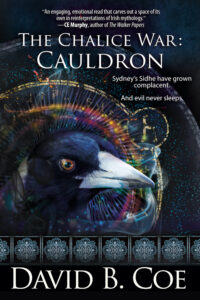 I also know that what has been a quiet year thus far is about to get very, very busy. Starting in May, we (Bell Bridge Books and I) will be releasing The Chalice War trilogy, the aforementioned Celtic urban fantasy. The first book, The Chalice War: Stone, will be out that month, followed closely by The Chalice War: Cauldron, and, sometime in the summer, The Chalice War: Sword. I can’t wait. Sword will be my thirtieth (yes, 30th) published book.
I also know that what has been a quiet year thus far is about to get very, very busy. Starting in May, we (Bell Bridge Books and I) will be releasing The Chalice War trilogy, the aforementioned Celtic urban fantasy. The first book, The Chalice War: Stone, will be out that month, followed closely by The Chalice War: Cauldron, and, sometime in the summer, The Chalice War: Sword. I can’t wait. Sword will be my thirtieth (yes, 30th) published book. I have two other projects underway as well. A nonfiction thing that I am not ready to discuss in detail, and, at long last, the editing of the Winds of the Forelands books for re-release in late 2023 or early 2024. And I have another writing project — a collaborative undertaking — that I also cannot describe in detail, simply because I am not the organizing force behind the project, so it is not mine to reveal. But I am excited about it.
I have two other projects underway as well. A nonfiction thing that I am not ready to discuss in detail, and, at long last, the editing of the Winds of the Forelands books for re-release in late 2023 or early 2024. And I have another writing project — a collaborative undertaking — that I also cannot describe in detail, simply because I am not the organizing force behind the project, so it is not mine to reveal. But I am excited about it.








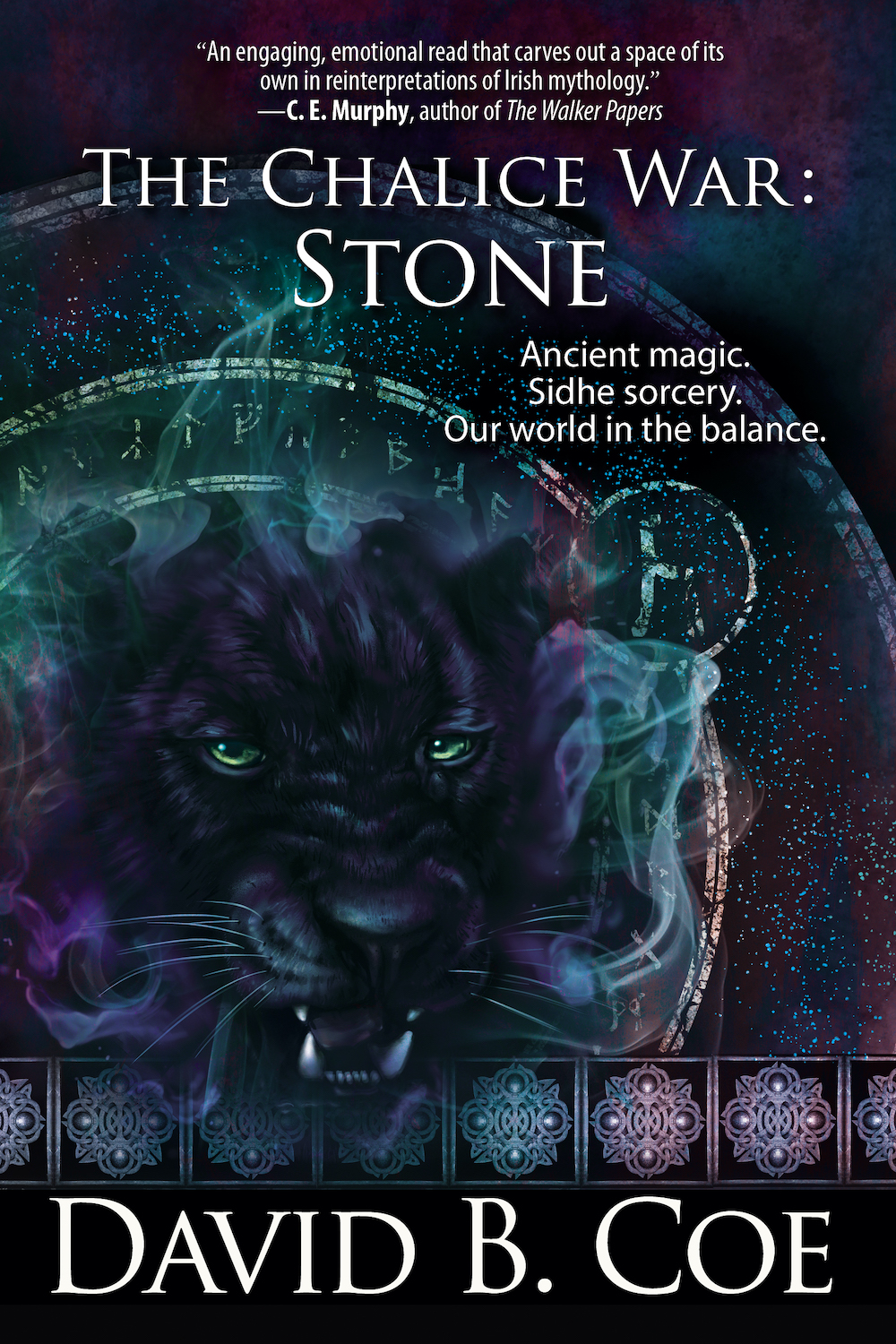 As I have mentioned previously, the release of the first book in my upcoming Celtic urban fantasy, The Chalice War (
As I have mentioned previously, the release of the first book in my upcoming Celtic urban fantasy, The Chalice War (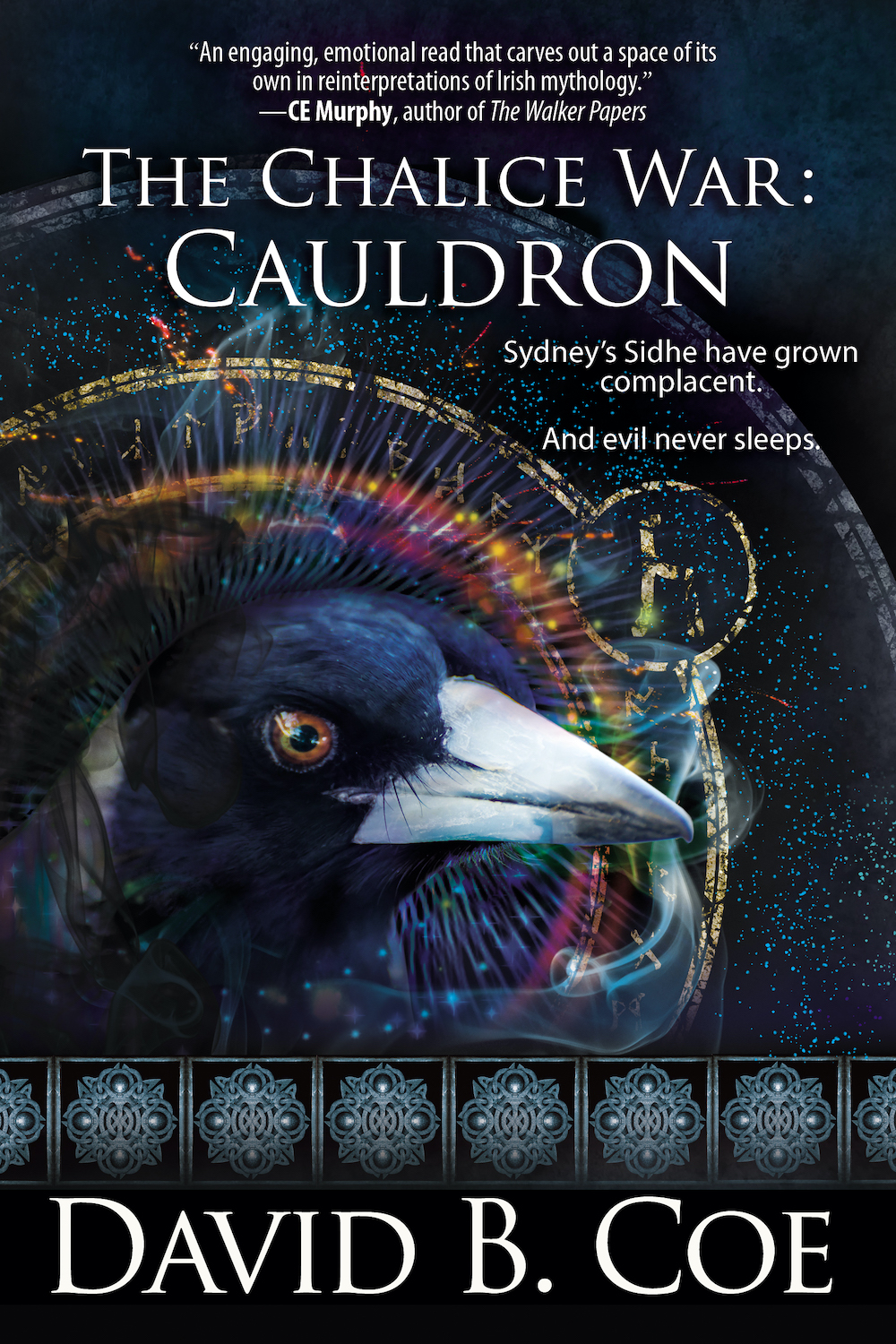
 And I did. The book was Invasives, by the way. It contains the best character work I’ve ever done, and that is no coincidence.
And I did. The book was Invasives, by the way. It contains the best character work I’ve ever done, and that is no coincidence. My “What matters?” series of posts will conclude next Monday, after a Monday Musings post this week that straddled the personal and professional a bit more than usual. In the meantime, I am using today’s Professional Wednesday post to begin pivoting toward the impending release of my new series, a contemporary urban fantasy that delves deeply into Celtic mythology. The series is called The Chalice War, and the first book is The Chalice War: Stone. It will be released within the next month or so, and will be followed soon after by the second book, The Chalice War: Cauldron, and the finale, The Chalice War: Sword.
My “What matters?” series of posts will conclude next Monday, after a Monday Musings post this week that straddled the personal and professional a bit more than usual. In the meantime, I am using today’s Professional Wednesday post to begin pivoting toward the impending release of my new series, a contemporary urban fantasy that delves deeply into Celtic mythology. The series is called The Chalice War, and the first book is The Chalice War: Stone. It will be released within the next month or so, and will be followed soon after by the second book, The Chalice War: Cauldron, and the finale, The Chalice War: Sword.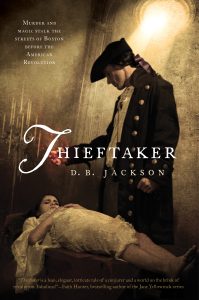 I finished the book and showed it to my agent. She liked it a lot, but thought it needed work. She was right, of course. But by that time, I had signed the contracts for Robin Hood and the Thieftaker books. Not too long after, I finally sold the Fearsson series to Baen Books and so had that trilogy to get through.
I finished the book and showed it to my agent. She liked it a lot, but thought it needed work. She was right, of course. But by that time, I had signed the contracts for Robin Hood and the Thieftaker books. Not too long after, I finally sold the Fearsson series to Baen Books and so had that trilogy to get through.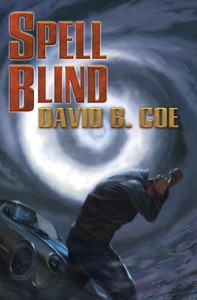 But I never forgot my Celtic urban fantasy, or its heroes Marti and Kel. When I had some spare time, I went back and rewrote the book, incorporating revision notes from friends and from my agent with my own sense of what the book needed. I rewrote it a second time a couple of years later, and having some time, started work on a second volume, this one set in Australia (where my family and I lived in 2005-2006). I stalled out on that book about two-thirds of the way in, but I liked what I had. By then, though, I was deeply involved with the final Thieftaker books and the Fearsson series. And I was starting to have some ideas for what would become the Islevale trilogy.
But I never forgot my Celtic urban fantasy, or its heroes Marti and Kel. When I had some spare time, I went back and rewrote the book, incorporating revision notes from friends and from my agent with my own sense of what the book needed. I rewrote it a second time a couple of years later, and having some time, started work on a second volume, this one set in Australia (where my family and I lived in 2005-2006). I stalled out on that book about two-thirds of the way in, but I liked what I had. By then, though, I was deeply involved with the final Thieftaker books and the Fearsson series. And I was starting to have some ideas for what would become the Islevale trilogy.